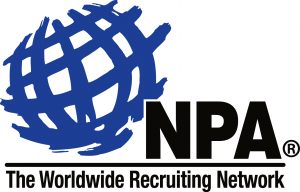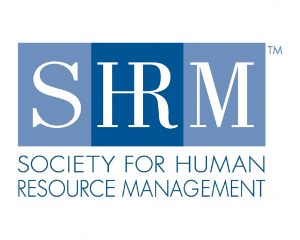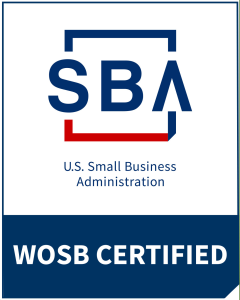Virtual Interviews
Top Virtual Interview Tips
Be Technically Prepared. Find out ahead of time what video conferencing platform the interview will be conducted on. …
Dress to Impress. …
Natural Eye Contact. …
Smile! …
Use your desktop or laptop computer, not your cellphone.
Do a Trial Run
The last thing you want to do is get on the virtual platform (Zoom/Skype, etc.) minutes before a job interview and be totally unfamiliar with it. Even if you use it somewhat regularly, it’s a good idea to do a practice call with a friend shortly before your interview just make to make sure everything looks good, sounds good, and works as intended.
In the trial run, you should also make sure your software is up to date and you know what your password is. You don’t want to start the program for an interview only to spend several minutes trying to remember, recover, or reset your password if necessary.
Make Sure the Interviewers Have Your Contact Info
Naturally, your interviewer should get your contact information before the interview. But you should have a backup plan. No matter how well prepared you or your interviewers are, something could go wrong that prevents you from having the interview. In that case, it’s a good idea for you both to be ready to switch over to a plain phone interview. Making that switch is a lot easier if you’ve already given the interviewers a phone number they can reach you at should the video connection drop.
Before you send an interviewer your contact details, make sure you’ve reviewed your software username and profile. If you’re still using a goofy username that you made up in high school or have profile details you don’t want them to see, it may be time for you to update these things or create a new profile for professional purposes.
Use Headphones
If you’ve ever been on the other end of a video or phone call and had to listen to everything you say echoed back to you, then you know how frustrating it can be. Some high-quality microphones can do a good job of preventing this, but the easiest way to make sure you’re not going to annoy your interviewers is by wearing a pair of headphones. Unless you have incredibly loud headphone, your microphone shouldn’t pick up the audio coming from your interviewers.
Be Mindful of Background Noise
It’s not just the echo of your interviewers’ voices that you have to worry about. Do your best to pick a space that’s quiet, so the interviewers can hear you when you speak and don’t hear a bunch of racket when they speak. Keep in mind this doesn’t just mean you should find a space that’s quiet at the moment you start the interview. It might be quiet in your living room, but street noise could suddenly flair up and disrupt your interview. you’ll also want to avoid typing on your keyboard, as the clicks can be fairly audible. If you have a hard time finding somewhere perfectly quiet, you can also make use of the mic mute button when you’re not talking.
If You Have Roommates, Tell Them Beforehand
Your roommates might be your best friends, but if they come home during your interview, they can be a serious disruption. If you’re in a common space, they may make noise that interrupts the interview, and even if you’re in your own room, they could play loud music that forces you to briefly stop the interview. The best solution is to tell your roommates when you’ll have a video interview, where you’re going to try taking the interview and hope they’ll respect the need for quiet.
Don’t Have Lights Behind You
You want your interviewer to be able to see you, and the fastest way to ruin that on a video call is to sit with your back to a strong light. Your webcam will likely adjust to the lighting, and leave you appearing like a mysterious silhouette. Your interviewers will likely be unable to see your face or your mouth moving, and it won’t help your chances of getting the job. Instead, face the light source so your face and background are equally well lit.
Dress for an Interview
Just because you’re interviewing virtually and your interviewer may seeing nothing but your chest, shoulders, and face, doesn’t mean you shouldn’t dress appropriately for the interview. Dress as you would if you were going into the company’s office to meet your interviewer face-to-face. Yes, that means you should wear pants, especially because you can’t be sure you won’t have to get up and move during your interview. At least shoes and socks are optional; if your feet end up on camera, something else has gone wrong.
Think About What Your Interviewer Will See
We’ve mentioned a few things you don’t want your interviewer to see, but there’s still more to this. Having a cluttered background may distract your interviewer, and if it’s a real mess, it may give them a bad impression. Ideally, you should find a place with a tidy and plain background so your interviewer can focus on you. Adding to this, the angle of your camera is important, as you should try to get the camera level with your face and avoid putting your computer in your lap with the webcam angled up. That’s an easy way to give interviewers a view up your nose.
Don’t do Virtual Interviews on Your Phone
Your phone may be great for a lot of things, and it’s handy being able to have video calls on phones, but they aren’t ideal for having an interview on. If you have no other option, use the phone, but go with a computer if you can. The larger screen will make it easier for you to see your interviewer, and the higher, more stationary camera should let you give them a better angle to see you. If you absolutely must use your phone, at the very least make sure you don’t hold it in your hand.
Use Wired Connections Wherever You Can
To use virtual interviews online, a key component is actually being online. Wi-Fi, Bluetooth, and mobile connections may be a lot better than they have been in the past, but wired connections are generally far more reliable. If your computer can connect to the internet via an Ethernet cable, and if you have wired headphones, these are better bets for a stable connection than relying on wireless connections for your interview.
Alpha Rae Personnel believes that using Skype and Zoom to facilitate our employment interviews can are vitally important tools to get to know our candidates and potential employees better. We appreciate the fact that a virtual interview is the best of both worlds – the convenience of online access coupled with critical face-to-face communication.
To assist our candidates with their virtual interviews Alpha Rae has compiled this list of Tips to ensure a comfortable experience.
Tip # 1: PRACTICE – if you are not a regular user of the virtual Interview platforms (Skye and Zoom) you need to complete at least one test run.
-
Login to the platform (keep notes on your login information near the computer you will be using).
-
Ask a friend to help you with your dry run – access the platform with a friend and have them ask you questions.
-
Practice with the tools available within the platform so they feel more natural when you are
-
Practice all the tips contained in this document during the dry run – perfect practice is important
Tip # 2: LOOK AT THE CAMERA NOT THE SCREEN – remember the camera is where your interviewer will be seeing you. One of the most common mistakes during a virtual interview is looking at the screen. You will only have direct eye contact with your interviewer when you are looking directly at the camera.
Tip # 3: DRESS THE PART – part of the strength of virtual interviews is that the potential employer is able to visibly see you as a candidate and potential employee. This means that your appearance is critically important. You should be very conscience of your appearance, take extra care in your clothing, grooming, posture, body language, it ALL matters. Help them see you as the ideal employee they are looking for.
Tip # 4: PREPARE YOUR SURROUNDINGS – make sure you are aware of everything that your interviewer will see within your camera. This is another reason a practice run is important, make sure you ask your friend what all they are able to see and remove anything that may be a distraction or embarrassing for your interviewer to see. Your surroundings also include noise interference, make sure there is no distracting noises as you are interviewing.
Tip # 5: CLOSE OTHER PROGRAMS – close all the other programs on your computer. This means NO Facebook (or other social) notifications popping up during the interview. Just close it all down except the virtual interview platform you will be using – this is another way you need to avoid distractions like noisy alerts or notifications.
Tip # 6: USE a DESKTOP OR LAPTOP NOT a CELLPHONE – when possible avoid using your cell phone for a Skype or Zoom interview. It is difficult, and sometimes nerve wracking, enough to excel in a virtual Interview when you are using a desktop or laptop computer but when you try to juggle a cell phone, plus reference your notes, plus keep smiling, plus project your best self; it can be nearly impossible. Limit your activity by sticking with a computer that requires less balancing. You’ll be glad you did.
Tip # 7: USE NOTES – having notes that will help you answer some of the potential questions that often come up in an interview can be super helpful. Jot down your responsibilities and achievements within your past jobs, anything that can help you answer professionally without stumbling over your words is great. A virtual interview lends itself to having notes sitting by your computer so take advantage of that.
Tip # 8: DO NOT OVERUSE NOTES – don’t bury your face in your notes and read from them. They need to be a reference NOT a distraction.
Tip # 9: KEEP INTERVIEWER ENGAGED – an interview is not a time to answer questions with a YES or NO. Elaborate and help the interviewer see why you’re the best candidate. Show them that you are articulate and knowledgeable in your field. If you don’t say it…they won’t know you know it.
Tip #10: FOLLOW UP – the interview is complete…you NAILED it!! Congratulations!! Now you need to do the step that so many potential employees skip…send your interviewer a follow-up. Send them an email thanking them for their time, letting them know that you are interested in the position and were really excited by the conversation you had during your interview. Also, reiterate any of the details your interviewer told you about the position and decision making process and let them know that you look forward to the next step in the process.




